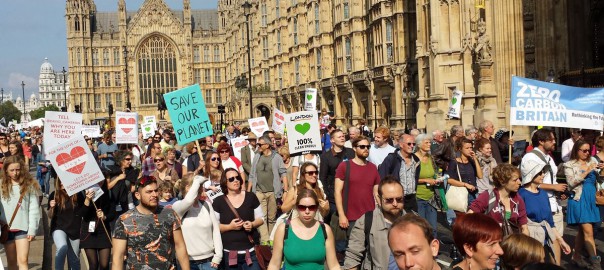Until governments undertake to keep fossil fuels in the ground, they will continue to undermine agreement they have just made

By comparison to what it could have been, it’s a miracle. By comparison to what it should have been, it’s a disaster.
Inside the narrow frame within which the talks have taken place, the draft agreement at the UN climate talks in Paris is a great success. The relief and self-congratulation with which the final text was greeted, acknowledges the failure at Copenhagen six years ago, where the negotiations ran wildly over time before collapsing. The Paris agreement is still awaiting formal adoption, but its aspirational limit of 1.5C of global warming, after the rejection of this demand for so many years, can be seen within this frame as a resounding victory. In this respect and others, the final text is stronger than most people anticipated.
Outside the frame it looks like something else. I doubt any of the negotiators believe that there will be no more than 1.5C of global warming as a result of these talks. As the preamble to the agreement acknowledges, even 2C, in view of the weak promises governments brought to Paris, is wildly ambitious. Though negotiated by some nations in good faith, the real outcomes are likely to commit us to levels of climate breakdown that will be dangerous to all and lethal to some. Our governments talk of not burdening future generations with debt. But they have just agreed to burden our successors with a far more dangerous legacy: the carbon dioxide produced by the continued burning of fossil fuels, and the long-running impacts this will exert on the global climate.
With 2C of warming, large parts of the world’s surface will become less habitable. The people of these regions are likely to face wilder extremes: worse droughts in some places, worse floods in others, greater storms and, potentially, grave impacts on food supply. Islands and coastal districts in many parts of the world are in danger of disappearing beneath the waves.
Read more: The Guardian
